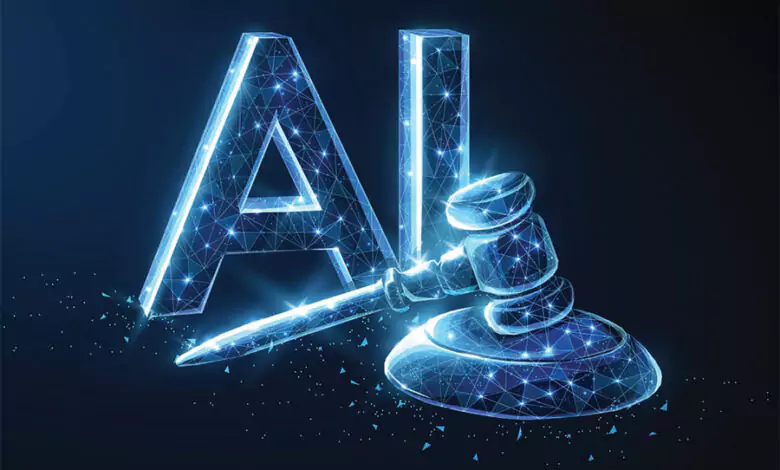India’s AI Regulation Laws
Artificial Intelligence (AI) is transforming the global economy, and India is taking a strategic approach to ensure ethical AI development, mitigate biases, and regulate AI-based surveillance risks.
India's AI strategy includes policy reforms, infrastructure investment, ethical AI regulations, and global cooperation, making it a leading AI innovation hub while ensuring responsible AI governance.
Key AI Governance Initiatives in India
| Initiative | Purpose & Impact |
|---|---|
| INDIAai Mission (₹10,300 Cr Fund) | Ensures safe & trusted AI by promoting fairness, transparency, and innovation. |
| AI Data Bank | Provides high-quality datasets for researchers and startups to build inclusive AI solutions. |
| AI Ethical Certification Project | Ensures AI models are free from bias, protecting fairness in decision-making. |
| AI Privacy Enhancing Strategy | Establishes privacy-preserving AI standards for secure and ethical data use. |
| AI Regulation & Global Cooperation | India engages in G20 & UN forums to promote a rules-based AI framework. |
| BharatGen (Govt AI LLM) | India’s first government-backed AI model, supporting multiple Indian languages. |
| Digital India BHASHINI | AI-driven language translation & accessibility initiative for digital inclusion. |
| AI Centres of Excellence (CoEs) | Established in Healthcare, Agriculture, Sustainable Cities, and Education. |
Core Principles of India’s AI Regulation Strategy
Ethical AI Development & Fairness
- Alignment with UNESCO’s AI Ethics Guidelines for fairness, inclusivity, and human rights protection.
- AI systems must be auditable, explainable, and free from bias & discrimination.
- AI Ethical Certification Project ensures fairness audits, reducing algorithmic bias.
- Regulatory framework for high-risk AI applications in sectors like law enforcement and healthcare.
Data Privacy, Security & Protection
- AI Privacy Enhancing Strategy to ensure privacy-preserving AI standards.
- Strict compliance with Digital Personal Data Protection (DPDP) Act for AI applications.
- Anonymization of personal data to prevent risks of AI-driven surveillance.
- Sectoral guidelines to regulate AI in healthcare, finance, and law enforcement.
Reducing AI Bias & Discrimination
- Mandatory fairness audits for AI-driven recruitment, lending, and criminal justice systems.
- IndiaAI Dataset Platform ensures diverse and unbiased datasets for training AI models.
- Public-private partnerships to develop explainable and interpretable AI models.
AI & Surveillance Regulation
- Ban on AI-based mass surveillance without legal oversight.
- Human-in-the-loop (HITL) systems to ensure AI decisions can be reviewed and challenged.
- Facial Recognition & Predictive Policing will be strictly regulated to prevent abuse.
AI for National Security & Defense
- AI Data Bank to strengthen cybersecurity, intelligence, and defense applications.
- AI-powered threat detection & disaster response for real-time crisis management.
- Ethical AI policies for military applications to prevent autonomous weapons misuse.
AI Compute & Infrastructure Growth in India
- ₹10,300 Cr Investment under IndiaAI Mission for AI infrastructure.
- Supercomputing Cluster (18,693 GPUs) for AI research & development.
- Open GPU Marketplace ensures affordable AI compute access for startups.
- Plans to develop India’s own GPUs to reduce reliance on foreign AI hardware.
Global AI Regulation Comparisons
| Country | Regulation Focus | Comparison with India |
|---|---|---|
| EU (AI Act) | Risk-based AI regulation with strict rules on high-risk AI | India follows a sectoral approach but aligns with EU’s AI ethics guidelines. |
| USA (Executive Order on AI) | Encourages innovation with self-regulation | India leans towards EU-style regulation rather than the US’s market-driven approach. |
| China (AI Laws) | Strict AI censorship & government control | India promotes open AI innovation while ensuring ethical AI governance. |
| UK (AI White Paper) | Focus on pro-innovation, voluntary standards | India’s AI laws are stricter than the UK’s, especially in privacy & bias regulation. |
Challenges in AI Governance in India
- Need for Stronger Enforcement Mechanisms – AI regulations must be backed by independent regulatory bodies.
- Balancing AI Innovation & Regulation – Overregulation could slow down AI research & startups.
- AI Accountability & Explainability – Ensuring AI decision-making is transparent.
- Cross-Border Data Flow & AI Ethics – Aligning AI policies with global governance frameworks.
India’s AI Policy Roadmap
- AI Bill & Dedicated AI Regulatory Authority to enforce ethical AI practices.
- Stronger AI bias testing & explainability requirements for all AI-driven systems.
- Human oversight in high-risk AI applications (e.g., law enforcement, finance).
- Incentivizing AI startups to develop responsible AI models for global markets.
- International AI collaboration for policy standardization & ethical AI development.
AI & Industry: Impact on Economy
- AI expected to contribute $450–500 billion to India’s GDP by 2025 (9% of GDP).
- AI industry expected to create over 1 million jobs by 2026.
- India ranks 1st globally in AI skill penetration (Stanford AI Index 2024).
India’s AI Governance Approach
India is actively shaping an ethical, responsible, and innovation-driven AI ecosystem. With initiatives like IndiaAI Mission, AI Data Bank, and AI Ethical Certification, India is setting a global benchmark in AI governance.
However, stronger regulatory enforcement & international collaboration will be key to ensuring safe, unbiased, and trustworthy AI adoption.
Additional Insights on India’s AI Regulation Strategy
Lesser-Known AI Governance Policies in India
AI Risk Classification Framework
India is developing a risk-based AI classification system similar to the EU AI Act, but tailored for India's digital ecosystem. The AI models will be categorized into:
- Minimal Risk – AI applications for entertainment, education, or basic automation.
- Limited Risk – AI for customer support, recommendation systems (like OTT algorithms).
- High-Risk AI – AI in healthcare, finance, hiring, and law enforcement (will need strict compliance & audits).
- Prohibited AI – AI applications that violate human rights, like automated mass surveillance.
Why It Matters? This ensures that stringent AI laws apply only to high-risk sectors, avoiding unnecessary restrictions on startups and innovation.
Responsible AI Certification (RAIC) System
India is working on an AI certification system where AI models must be certified for fairness, transparency, and privacy before deployment.
- Mandatory for AI used in banking, law enforcement & critical sectors.
- AI systems will have an explainability score based on how interpretable their decisions are.
- Inspired by EU’s CE certification for AI compliance.
Why It Matters? This will boost consumer trust in AI and prevent companies from deploying biased or unregulated AI models in sensitive areas.
AI Cybersecurity & Safe Deployment Guidelines
- India's AI laws will mandate regular penetration testing of AI models used in banking, government, and defense.
- AI models must comply with cybersecurity standards set by CERT-In (India’s cybersecurity agency).
- AI developers will need to submit risk assessment reports before deploying autonomous AI systems.
Protects against AI hacking risks (e.g.,
AI-generated deepfakes,
fraud).
Ensures AI systems cannot be weaponized for
misinformation.
Hidden Challenges in India's AI Governance
AI & Labor Market Disruption
- AI adoption will automate millions of low-skilled jobs in banking, customer service, and data entry.
- India has one of the largest IT workforces globally – AI could replace traditional software & coding jobs.
- Government is investing in AI reskilling programs but not fast enough to match AI job losses.
What Needs to be Done?
- Expand AI training for blue-collar and IT sector workers
- Implement AI taxation on companies that automate jobs to fund reskilling programs
AI & Political Manipulation Risks
- AI-driven deepfakes and misinformation can influence elections (e.g., AI-generated political speeches).
- India lacks strict laws against AI-generated fake news.
- The Election Commission of India is working on AI moderation policies for political content.
Proposed Solution: A national fact-checking AI system integrated into social media platforms.
AI & Cultural Bias in Indian Models
- AI models trained on Western datasets may misrepresent Indian cultural norms.
- India is developing BharatLLM & Sarvam AI – local language AI models to reduce Western data dependence.
- Government pushing for more AI datasets in Hindi, Tamil, Bengali, and regional languages.
Solution: Expand Indian language training datasets to ensure AI models understand Indian contexts better.

India's AI Geopolitical Strategy – Competing with China & US
| Country | AI Strategy | Comparison with India |
|---|---|---|
| USA | Market-driven AI with tech giants like Google & OpenAI leading. | India is adopting a regulatory approach while promoting local AI startups. |
| China | State-controlled AI with heavy censorship. Focus on surveillance & military AI. | India’s AI policy is more democratic & privacy-focused. |
| EU | Strict AI regulation with GDPR compliance. Focus on AI ethics & user rights. | India is aligning with the EU AI Act but with flexible sectoral rules. |
| Japan | Focus on AI for robotics & automation. Heavy investment in AI for elderly care. | India is prioritizing AI for governance, language models & startups. |
Why It Matters? India aims to position itself as a global AI hub while avoiding China’s surveillance-based AI model.
How India’s AI Laws Will Impact Startups & Businesses
- Startups will get subsidized access to AI supercomputing power via IndiaAI GPU clusters.
- Easier AI model testing & deployment under the Responsible AI Certification (RAIC).
- AI in fintech & banking will be regulated strictly to avoid fraud risks.
- Social media platforms must implement AI bias detection tools to prevent misinformation.
Key Takeaway: AI startups in India must focus on ethical, transparent AI models to comply with future regulations.
India’s AI Regulation vs Other Emerging Markets
| Country | AI Regulation Focus | Compared to India |
|---|---|---|
| Brazil | AI laws focus on worker protection & bias reduction. | India also regulates AI bias but emphasizes data privacy more. |
| South Africa | Limited AI laws, mostly focused on fintech AI. | India has a broader AI governance framework. |
| Singapore | AI strategy promotes sandbox testing & innovation. | India has stricter AI risk assessments before deployment. |
| UAE | Heavy AI investments in smart cities & surveillance AI. | India is more cautious about AI-based surveillance. |
India’s AI laws are more comprehensive than most emerging economies but need faster execution.
The Future of AI Regulation in India – What’s Next?
- AI Bill Expected by 2026 – India may introduce a dedicated AI regulation act.
- AI Explainability Mandate – All AI models in banking & healthcare must be fully explainable.
- Cross-Border AI Data Rules – AI firms must disclose international data-sharing agreements.
- AI & Intellectual Property (IP) Rights – Clarifying who owns AI-generated content in India.
Final Thought: India is building a balanced AI regulatory ecosystem but needs stronger enforcement mechanisms.













